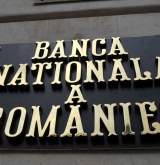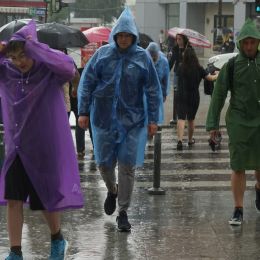While prospects for re-igniting GDP growth in the region may seem distant, according to a new report by KPMG in Central & Eastern Europe, a comprehensive EU funding package for the new member states in the period 2007-2013, worth 215 billion euros, appears to offer a boost for them as their economies wait for the crisis to subside.
So far, much of this funding has been spent on things like transport, rural development and fisheries, environment and human resources development.
“Clearly, use of these EU funds is an excellent way for emerging economies in our region to ‘weather the storm’ of the current global economic crisis,” says Daniela Nemoianu, Head of KPMG in Romania’s Advisory Services practice.
“As EU funds can make up anywhere from about 2-5% of these states’ annual GDPs, within the context of the crisis it is even more crucial that they make the most of the available funding for 2007-2013.”
But will the countries within Central & Eastern Europe be clever and nimble enough to take advantage of the vast funding opportunities that exist?
Whether they are able to could depend upon the success they have achieved thus far in the first two years of the funding period 2007-2013. KPMG has assembled a comprehensive report card of their progress in its new publication EU Funds in Central and Eastern Europe, Progress Report 2007-08.
The Report finds that the new member states’ utilisation of EU funds varies widely. Some interesting points from KPMG’s report include the fact that Hungary, whose economy has been struggling more than many of its peers, is a leader in the region in the processing of funding implementation. . The Czech Republic and Slovenia have also done an effective job of implementation of funds. However, some of the CEE countries surveyed are at a high risk of failing to capitalise on the available opportunities.
According to Florin Banateanu, EU Funds and Public Sector Director in KPMG Advisory Romania, there are countries in Central & Eastern Europe which have not even begun implementation, like Lithuania, while Poland, the largest recipient of EU funds for 2007-20013 has an implementation rate of only 3%.
“The absorption of structural funds in Romania has registered an extremely slow progress during the first two years after accession. The hesitant actions of the Management Authorities, the protracted evaluation process, the delays in preparing the strategic documents and the lack of communication among the responsible institutions led to all national stakeholders’ concern that the European funds would be downgraded from the ‘rescue of the Romanian economy’ status”, Florin Banateanu commented.

However, during the first half of 2009, the Government adopted a few measures which should lead to a significant improvement of the absorption process in the near future. These measures refer to less cumbersome and less time consuming public procurement procedures and increased advance payments – up to 35% of the projects eligible costs.
Another concern is the fact that lately, in their attempt to bridge the gap; public authorities have mainly focused on the initial stage of the process, which is attracting structural funds, to the detriment of a strategic planning of the immediately following stages. Attracting the funds, without carefully planning administration and subsequent implementation, could generate major risks, especially under the current economic crisis conditions. The risk could equally affect both public and private sectors. The lack of support from payment structures and of clear regulations on financial reporting could lead to payment incapacity and consequently to an additional contraction of the Romanian economy.
In addition to measuring CEE countries’ rates of progress regarding EU fund implementation, including an extensive section dedicated to each new EU member state in the region, the information assembled in KPMG’s report provides them with a benchmark, an overall picture of available budgets, an outline of co-funded programmes in CEE, and analysis of the allocation of funds on a time-proportional basis.
“This information is an excellent starting point for gaining familiarity with the available EU funds in our region,” says Nemoianu, “but for more information, readers should contact KPMG’s team of advisors with expertise on EU funds and public sector”.
Citeste si:
Calculator Salariu: Afl─â c├ó╚Ťi bani prime╚Öti ├«n m├ón─â ├«n func╚Ťie de salariul brut ┬╗
Te-ar putea interesa și:


















































































![HR [PLAY] Tech Workout - 11...](https://www.wall-street.ro/image_thumbs/thumbs/973/973fe0a3888d417feff63de42e814180-260x260-00-65.jpg?v=1714117978)









